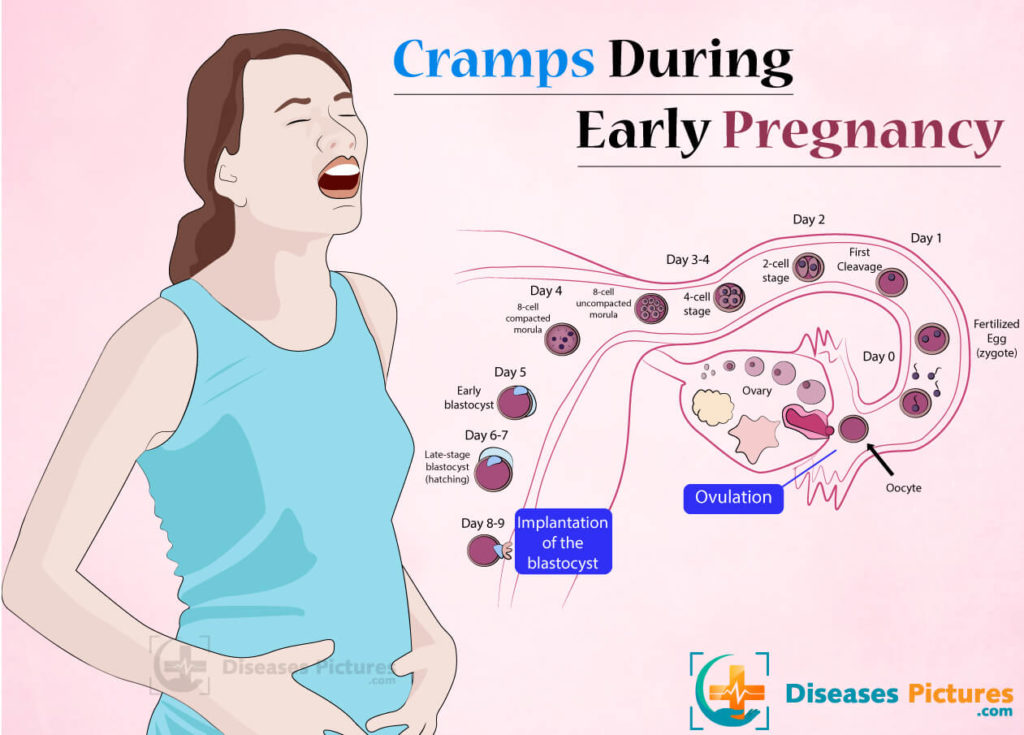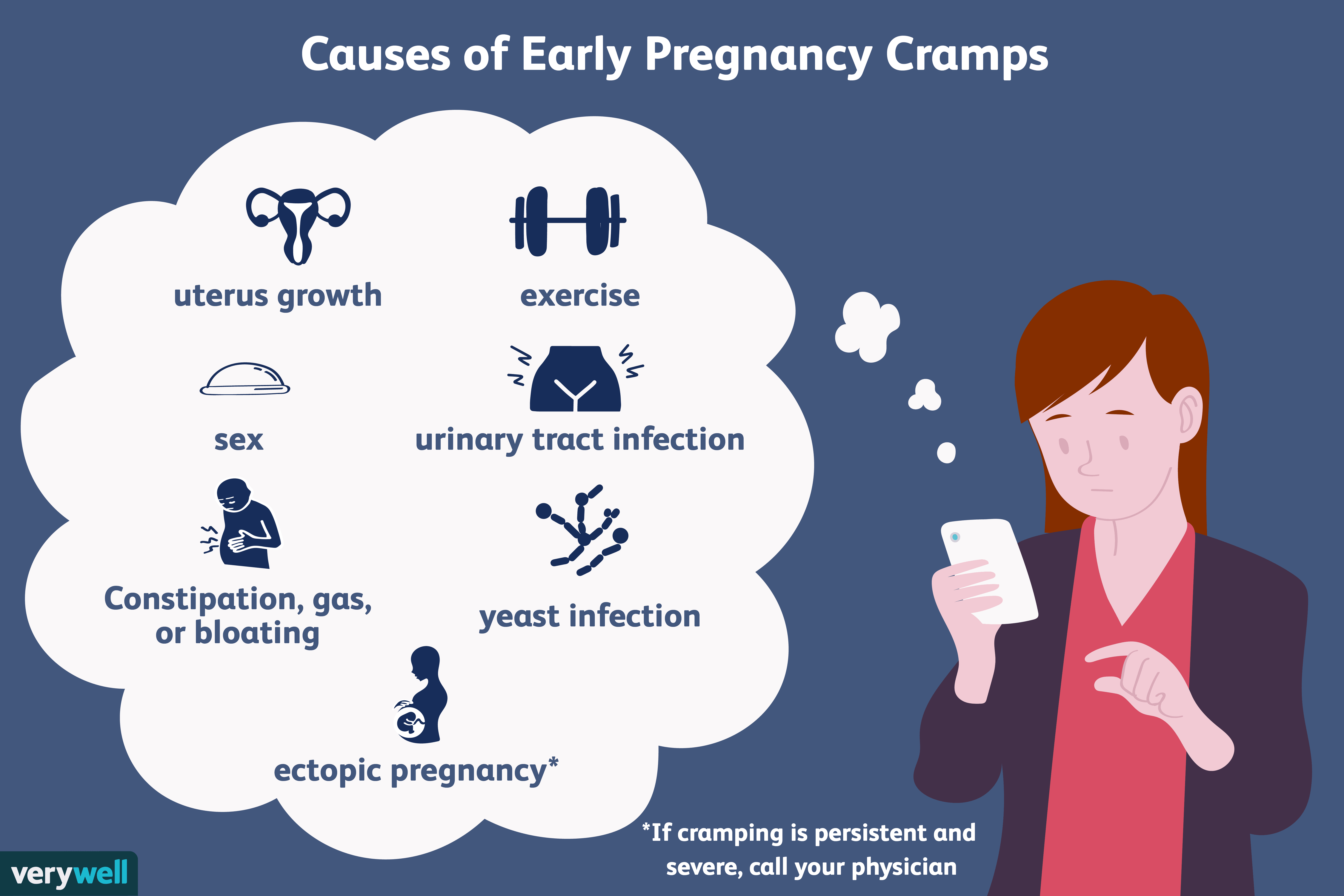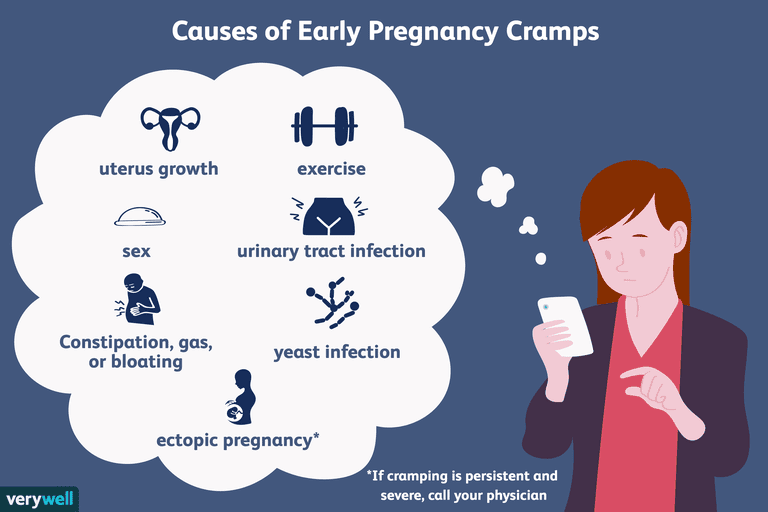Cramping In Early Pregnancy

Contents:
- What Causes Cramping at Early Stages?
- Which Feelings Cause Cramping?
- When is it Necessary to Get Checked?
- Ectopic Pregnancy
- Signs of Ectopic Pregnancy
- What Else Can Cause Cramping?
- What Helps During Cramping?
Cramps in Early Pregnancy
This is a rather common thing to happen. In most cases there is nothing to worry about if you have light cramping. Most commonly, it just grows to a stronger one and goes away. But sometimes uterine cramps can be a sign of complexities, so, it is always better to tell your doctor about it and keep the situation under his control.
Cramping especially scares those women who had problems with conception, who experienced miscarriage or complications. However, it is necessary to always remember that each pregnancy is unique, and what happened during one will not necessarily happen again. Stay calm and keep your attitude positive: it will help your organism bear the baby more easily.
What Causes Cramping at Early Stages?
The uterus begins to grow in size, and muscles and ligaments stretch as well. It causes pain and light cramping. The volume of blood in circulation increases, and its inflow to the uterus can cause heavy feeling and discomfort. Normally, muscular cramping is felt in the abdomen – on one side or both.
Some women have a uterus bend. In a normal position it tilts a little to the front wall of the stomach, but sometimes it is naturally bent so that it almost touches the upper part of the bladder. And when such uterus begins to grow bigger, it presses the muscles and nerve endings more.
What do Discharges Mean?

If the discharge is not abundant and is not related to cramping, it is normal. Usually, it appears when a fertilized ovum is fixed on the uterus wall. Also, a little discharge during the period when you normally would have menstruation is natural. As long as it is not abundant and does not cause pain, it is a consequence of natural processes.
Which Feelings Cause Cramping?
Usual light cramping resembles periodic pain. Sometimes it is felt stronger on one side of the stomach. They generally appear if you were standing for a long time before. It can get stronger when you sneeze or laugh. Different women describe their cramping differently: sharp, pricking, causing heavy feeling. Some doctors use an analogy with myotonic pain.
In a normal state, before pregnancy, uterus is a small organ consisting of muscle fiber, which is capable of stretching to a size multiple times bigger than the original one; so, discomfort and cramping inevitably follow the growth process. Of course, the pain will not get any weaker now that you know it, but an understanding of the processes in your organism will relieve your unnecessary anxiety.
When is it Necessary to Get Checked?
- if cramping bothers you and you want to make sure everything is alright;
- if the discharge does not stop and becomes more abundant;
- if you have strong sharp abdominal pain;
- if you have a fever and your overall well-being has gone worse;
- if you have problems with urination;
- if the symptoms of pregnancy became less evident.
What Requires Special Attention?
Despite the fact that cramping is considered normal during pregnancy, it can also be an early precursor of a miscarriage. Unfortunately, one out of four pregnancies ends with a miscarriage. It is mostly related to chromosomal deviations or to the ovum’s inability to get fixed on the uterus wall. Sometimes cramping means that ovum did not make it to the uterus and stayed in fallopian tube. In such case an ectopic pregnancy develops.
Ectopic Pregnancy

Ectopic pregnancy is an indication for hospitalization because it can be life threatening. The fetus has to be removed from the fallopian tube as soon as possible. Otherwise, it can lead to bleeding, inflammation, and toxic shock. That is why it is really important to get inspection if any suspicion on ectopic pregnancy takes place.
Signs of Ectopic Pregnancy
- sharp pain or descending tension in the abdomen;
- vaginal discharge or bleeding;
- abdominal distention, swelling, bulging;
- pain echoing in shoulders. It can be because of blood clumps in the abdomen below the diaphragm;
- backache.
- dizziness and fatigue.
What Else Can Cause Cramping?
- gallstones or infections;
- epigastric burning and indigestion. Pain in the epigastrium area can also be a symptom of heart failure or toxemia at the late stages of pregnancy;
- kidney or bladder infections;
- constipation;
- bloating and winds;
- girdle pain in the round ligament. It is usually felt on the sides of the stomach and may be described as short sharp paroxysmal pain;
- sexual intercourse and orgasm can cause uterus veins expansion, which results in pain.
When Will Cramping Go Away?
When the uterus grows so much that pelvic bones will become able to support it, and the load on muscles and ligaments decreases.
What Helps During Cramping?
- change your position while you sit or lie down more often. Move more, do a little exercising to improve your stretching.
- take warm shower, wear casually fit clothes, and massage your stomach lightly;
- do not wait if you need to go to the restroom, so that your bladder does not press the muscles more;
- avoid constipations. Drink more water; eat fresh fruit and vegetables, and products rich in cellulose. Restrict the consumption of rice, white bread, and spaghetti;
- try to lie down and relax when it is possible. Deep breath helps relieve muscle strain;
- when you sleep, put your legs on a small bench or a padded stool. If your legs are too low, it causes blood outflow from the pelvic area.
I’m 7 weeks pregnant. Today I’ve had very strong convulsions in the womb area. Is it normal for this term or not?
I’m also seven weeks, am having the very same cramps sometimes they’re mild sometimes severe but am getting scared since it’s my 1st pregnancy despite the fact that they on and off